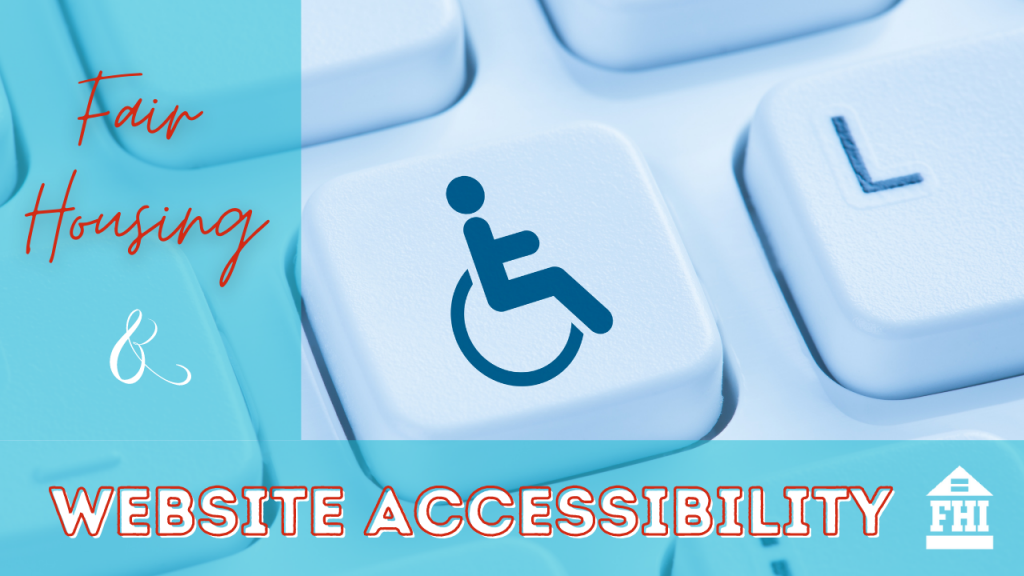What is website accessibility? Is this a subject that you should be paying attention to? Join us as we cut through the confusion and share what every property management company should be doing now.

Estimated reading time: 4 minutes
Table of contents
What is website accessibility? Basically, a website is considered accessible when its content can be accessed and consumed by anyone regardless of a physical disability. For instance, people who are blind or have low vision require a screen reader’s aid, but these only work if the website has the technology needed. Why is this now a point of concern? Website accessibility is being seen more frequently in the news due to the fact that more companies are seeing an increase in complaints. This raises the question: Is this fair housing-related, and what should property management companies be doing right now?
Are Accessible Websites a Legal Requirement?
Recently several businesses have been found liable under ADA laws for not having websites that are equipped with special technology that makes the content accessible to people with disabilities.
Interestingly though, the 11th Circuit, which is the Court of Appeals for the southeast region, came down with a decision finding that the ADA does not require website accessibility. This just adds to an already murky and confusing situation. Because of the lack of consensus between the districts, the next most likely step will be to take this issue to the Supreme Court. So what should property management companies do in the meantime?
Property Management Website Best Practices
Because it is not a law yet, many may feel that having accessible websites does not need to be a priority. However, we are seeing action that should make us all sit up and take notice. For instance, an advocacy group in Florida is attempting to make the case that an inaccessible website for housing providers violates The Fair Housing Act. We will have to watch and see if they will be successful.
Accessibility is part of our everyday language in property management, so it stands to reason that all aspects of our business should be accessible. By not being accessible, you could potentially lose business or worse. Consider this scenario: you receive a call from an individual looking to book an appointment to view a unit. They mentioned that they had wanted to fill out the online form, but the fields were not enabled to be used by a screen reader, so they had to call. Not off to a great start to say the least. By having an accessible website, this entire situation could have been avoided. So how do you ensure that your site is accessible?
Website Accessibility – Easier Than You Think
In times past, website accessibility wasn’t, well, accessible to most. It used to cost thousands of dollars to update a site to accessibility standards initially. Then you would need to have oversight to ensure that any additional content added was also accessible.
Thankfully with the advancement of technology, this is no longer the case. A simple plugin can be added to your site that does all the heavy lifting for you, similar to the one we use here at The Fair Housing Institute.
Another thing to keep in mind is that the things you need to do to make a website are generally required by Google as well. Google ranks higher sites that are easy to use, have readable text and elements, and have images that use good descriptive text. It’s a win-win situation.
In summary, whether it’s legally required or not, having an accessible website is a good best business and fair housing practice and can be easily implemented.
You May Also Like:
